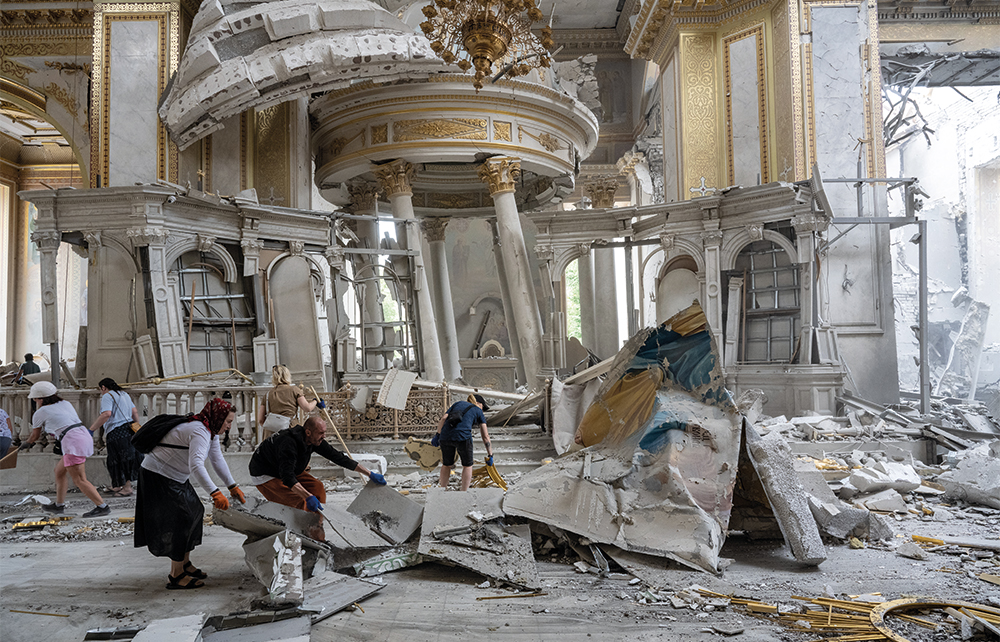How can you break the mental manacles of an empire that has occupied not only your physical world but also your education, publishing, media, high culture and popular entertainment? In his endearing memoir of Odesa, Undefeatable, Julian Evans quotes the Ukrainian author Viktoria Amelina, who describes growing up in post-Soviet Ukraine surrounded by all things Russian. She attended a Russian school, acted in children’s Russian theatre, listened to Russian rock and prayed in a Russian Orthodox church: ‘There was an entire system in place that aimed to make me believe that Moscow, not Kyiv, was the centre of my universe.’
When she was 15, Amelina felt flattered to be invited to Moscow for a Russian language contest. She was thrilled to be interviewed on state television. She felt like a star. But when the interviewer began to interrogate her about whether she felt downtrodden as a Russian speaker in Ukraine, Amelina realised:
I was just being used to manipulate millions of viewers of the evening news… I was only 15 years old. But in that split second, I had to figure out where the borders of my home were. I wasn’t Russian, after all – I was a Ukrainian kid brought to Moscow to reinforce certain Russian narratives.
Two decades later Russia would use these narratives to invade Ukraine. Amelina was killed last year – by a Russian missile that hit the pizzeria where she was eating. The building was probably targeted because it was often frequented by foreign journalists and NGO workers.
Evans’s book skilfully splices together the personal and the political, and some of his most fascinating characters are still wrestling with the borders of their identities.








Comments
Join the debate for just £1 a month
Be part of the conversation with other Spectator readers by getting your first three months for £3.
UNLOCK ACCESS Just £1 a monthAlready a subscriber? Log in